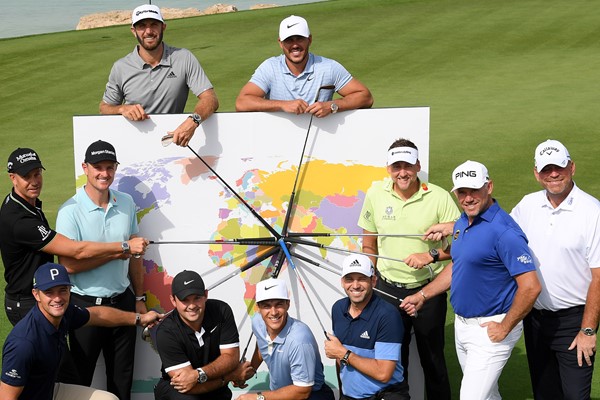To pretend that professional golf isn’t all about the money is to take a stance with one’s head buried in a bunker.
Pros go where the money is, even if they have to shake hands with morally corrupt individuals, or play in countries where there’s evidence of human rights abuse. As long as the price is right, the majority will tee it up.
It can be counter-argued that pro golfers, like most sportsmen and women, are there to play the game and not to get involved in politics. There are the exceptions to the rule – extreme examples being the Black Power salutes at the 1968 Olympics, Cassius Clay going to jail instead of the Vietnam War – but by and large they play ball and chase the cash. Last October Roger Federer broke the mould when he turned down an invitation to play in Saudi Arabia, a country with a poor human rights record, and said ‘It was a quick decision to make.’
Golf’s European Tour caravan recently stopped for a week in the same Saudi Arabia for the Saudi International, which Dustin Johnson won to collect $600 000, adding to the seven-figure appearance fee he received.
Outspoken former PGA pro and now commentator Brandel Chamblee expressed his disappointment at the European Tour’s decision to take the Saudi shillings. ‘By not participating in some marginal way – and I applaud Paul Casey – you can make a statement about human rights. Whether the European Tour knows it, and whether the players know it, by participating they are a ventriloquist for this abhorrent, reprehensible regime.’
But cash is king, which is why so many pros chose to not represent their country at the 2016 Rio Olympics where it was only honour up for grabs. Many of the top pros hid behind the ‘Zika virus’ excuse to avoid going to those Games. Newsflash: the number of Rio Olympians to contract the virus? Zero.
We probably shouldn’t be applauding Casey and criticising the likes of Justin Rose and Johnson when the real villains are those at the European Tour who endorsed the decision to pitch up in Saudi Arabia and add the event to their Tour schedule. While sport and politics can never be separated – South Africans will remember how they were in international isolation between 1960 and 1991 due to the government’s apartheid policy – administrators should be leading the way.
But, where does one draw the line?
In 1981 the Million Dollar Challenge at Sun City was launched, and Gary Player, Jack Nicklaus, Johnny Miller, Lee Trevino and Seve Ballesteros arrived to contest the first million-dollar prize stake in golf. They didn’t care that the event was a pitching-wedge ‘outside’ South Africa in the homeland of Bophuthatswana, but essentially overseen by the apartheid government.
There were cricket and rugby rebel tours to South Africa during apartheid – although penalties for sportsmen coming to the country were severe – but other sports such as pro boxing continued to thrive, even if South Africa were banned from the International Olympic Committee for 32 years.
In 2007 Player was criticised by the likes of Nelson Mandela and Bishop Desmond Tutu for designing a golf course in Burma (now Myanmar), although Player defended his decision at the time, saying he was ‘very disappointed’ that his ‘integrity and support for human rights has been brought into question’ and that his company’s involvement in the country had been ‘taken entirely out of context’.
Perhaps the PGA and European Tours could conduct one of those anonymous polls and pose the question to their pros: ‘Which country would you refuse to play in because of their violation of human rights and/or murderous political regime – even if there was $5-million in prize money and a handful of World Ranking points on offer?’
I too have had to look in the mirror and ask, as a journalist, which countries I would refuse to travel to for work purposes. It’s not as easy an answer as it might sound.
– Gary Lemke writes a monthly column for Compleat Golfer








